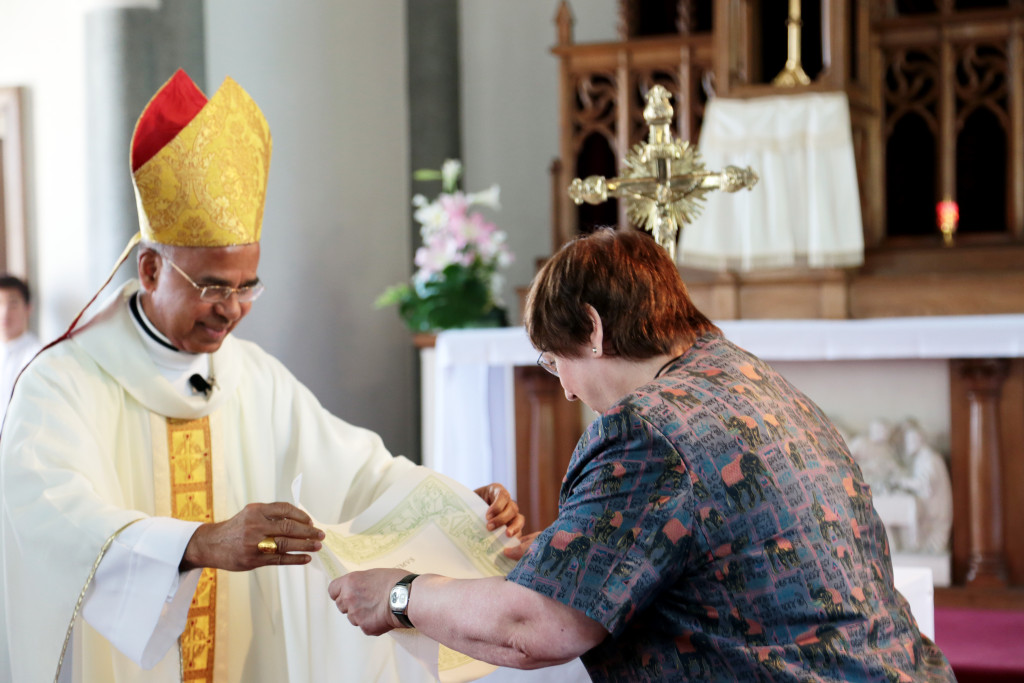Saint Maur is one of Japan’s best international schools. While teachers and administrators alike (not to mention students!) have been a driving force of its success, perhaps nobody has played a more central role than Jeanette Thomas. She has worked 53 years in education and is currently the Chairperson of the Board of Directors & Director of Human Resources. Between 1991 and 2013, she was the school head, and prior to that, worked many years as a teacher. What follows is a condensed interview with her from October.
How has youth education changed over the last few decades?
Rather than a top-down system, educators today recognize the importance of creating environments which encourage students to play an active role in the learning process. This requires educators to be engaging, inspiring, creative and innovative.
Through a deeper understanding of the science of learning, the focus now is on developing skills through student collaboration and inquiry-based learning. This has revitalized the teaching profession as it has required educators to think differently, pursue new teaching methods, and engage with their students as learners.
However, I continue to believe that a place still exists for some–dare I say it–‘old school’ elements! Ensuring that students gain a solid foundation in reading, writing, and arithmetic is essential.
How does Saint Maur distinguish itself from other international schools in Japan?
Saint Maur continues to be true to its mission and pioneering spirit. Our predecessors provided us with a solid modus operandi–a blueprint in the form of a sound governance model, a decision-making process, succession planning, and a deep sense of, and commitment to, their mission. While we have held fast to those values and traditions, at Saint Maur we have emulated its founders by embracing essential change. Through being mission-driven, vision-led and forward-thinking, we continue to navigate challenges while embracing new ideas and opportunities.
Sadly, music education has fallen victim to budget cuts everywhere. Why do you think it is important/critical to one’s overall education?
Many schools have had to either exclude or reduce the number of periods devoted to music. Although funding tends to be the main cause, finding time to include other subjects has resulted in music being considered less important. Unfortunately, the findings of various studies which indicate that music stimulates brain development, and improves IQ and overall academic achievement, have been ignored. It leaves only those students who can afford to pay for private lessons to reap the benefits of developing their musical and intellectual skills.
To me music is the only true ‘international language’. It transcends borders, cultures and religious boundaries. It unites people and provides a unique form of communication and expression. It enriches the soul and life.
When many of the Yokohama/Tokyo schools were experiencing an influx of students, Saint Maur made the decision not to exceed an enrollment of approximately 500 students. Our focus was on ‘quality’ rather than on ‘quantity’ in student numbers. Other schools erected more classrooms, but we built a state-of-the-art Fine Arts Center, which was completed in 1998. This facility has enabled us to provide students with opportunities to develop an interest in a range of fine-arts activities. All students participate in music. They are also provided with opportunities to join one of the choirs, bands, musical ensembles, the orchestra, or to perform periodically in stage musicals.
What are some of your best memories of educators doing something special for you as a student?
My best memories are of my music teachers. They provided me with encouragement, inspiration and motivation. Thanks to their dedication and guidance I was able to gain a place at the very competitive Royal Academy of Music in London. During my time at the Academy I studied with some of the most notable musicians of the day.
Although I did both teach and perform music for some years in England, Australia, New Zealand, Ireland and Japan, my path took a different turn into school administration. However, the skills and discipline I acquired as a musician have sustained me throughout my life. They have proved invaluable in enabling me to grow as an individual and meet the significant challenges school administrators are faced with.


